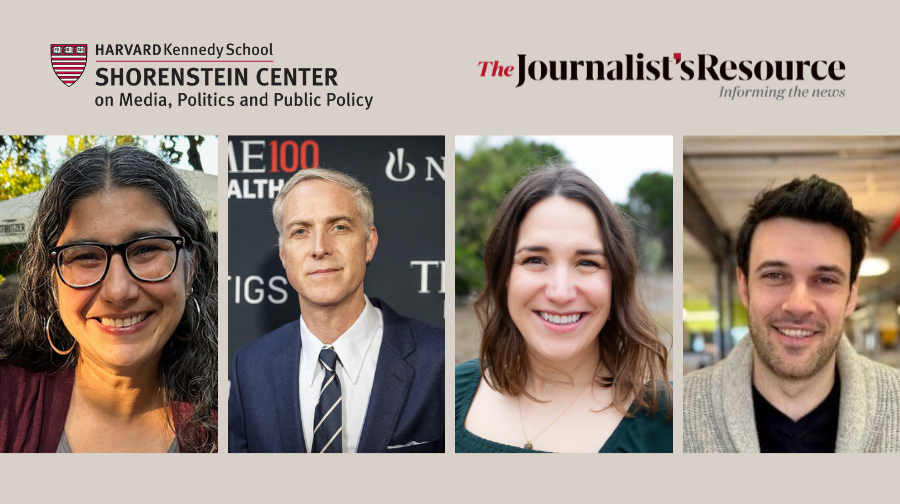Monday: why we need a new "media theory" for open science
Join me Monday at 12:30pm Eastern for a virtual panel on how open academic publishing can help rebuild trust in research

On Monday at 12:30pm Eastern, I'm moderating a virtual panel with the Journalist's Resource on what I'm roughly calling the "media theory" of open science as part of my Shorenstein Center Fellowship at the Harvard Kennedy School. I think it's going to be a fascinating and important conversation. I hope you'll attend — and why not tell a friend about it while you're at it?
What does that mean? Long story short, while observing the regime's war on research and higher education, it dawned on me that the way we think about how society encounters and understands research is due for an update. Prior to the internet and the open science movement, the academic enterprise operated a sort of parallel mass media system designed for researchers to learn about and discuss new work with each other. The news media used to be the primary way it overlapped with mass media and non-researchers.
As open science has become more prevalent, particularly online, this once-parallel system is increasingly overlapping with social and mass media in new and unpredictable ways. There have been both positive and negative impacts of these changes, but I've yet to come across many comprehensive theories of how the academic publishing system has co-evolved with the digital information ecosystem, and the downstream effects of that evolution on mainstream news, opinion, policy, and politics as it relates to science and research. In my view, it's vital to develop a better understanding of these changes at a time when the value scientific enterprise itself is, to put it mildly, being questioned in the U.S. and elsewhere. In some cases, government officials are even using features of science's trend towards openness as a way to discredit it.
In particular, I'm concerned that the discourse about these topics tends to be far too siloed. In the decade or so I've been working in science communication and academic publishing, I've been struck by the often rigid boundaries and professional norms that tend to separate active researchers from peers in publishing, communication, policy, and news at a time when most of us are, in some senses, publishing and advocating via social media and other digital tools on a regular basis.
So, with help from the great folks at the Journalist's Resource and the Shorenstein Center on Media, Politics, and Public Policy at the Harvard Kennedy School, I've convened a panel of folks spanning research, academic publishing, and news to start the conversation. It's an awesome group: Richard Sever, Chief Science and Strategy Officer of openRxiv; Needhi Bhalla, Professor of Biology at UC Santa Cruz; and Rachel Zamzow, Deputy Executive Director of the Open Notebook.
We'll discuss discuss the features of the emerging information ecosystem around research and what researchers, publishers, policymakers, and journalists can do to adapt to it and make sure open science fosters increasing public trust in science, rather than the opposite. And, of course, we welcome your questions and ideas.
Here's the signup link again. I hope to see you on Monday!